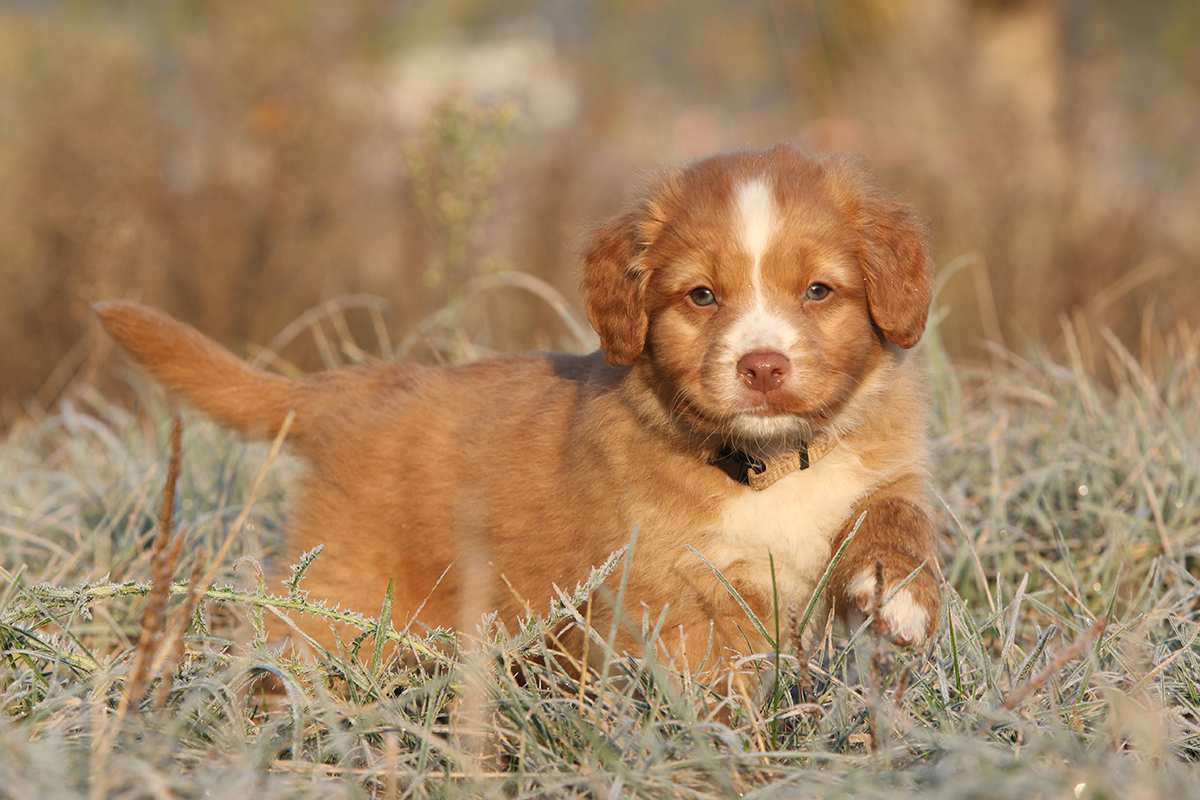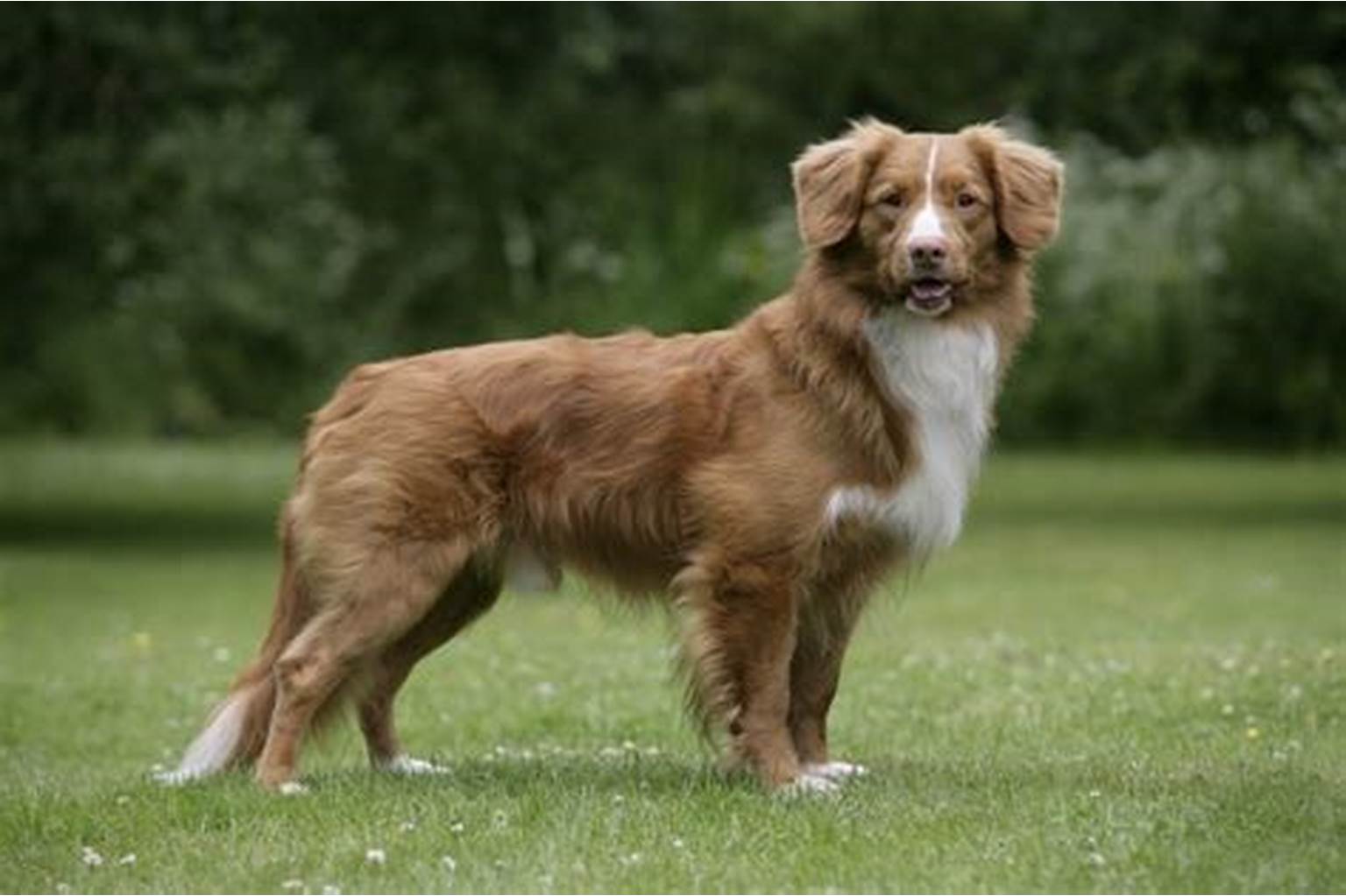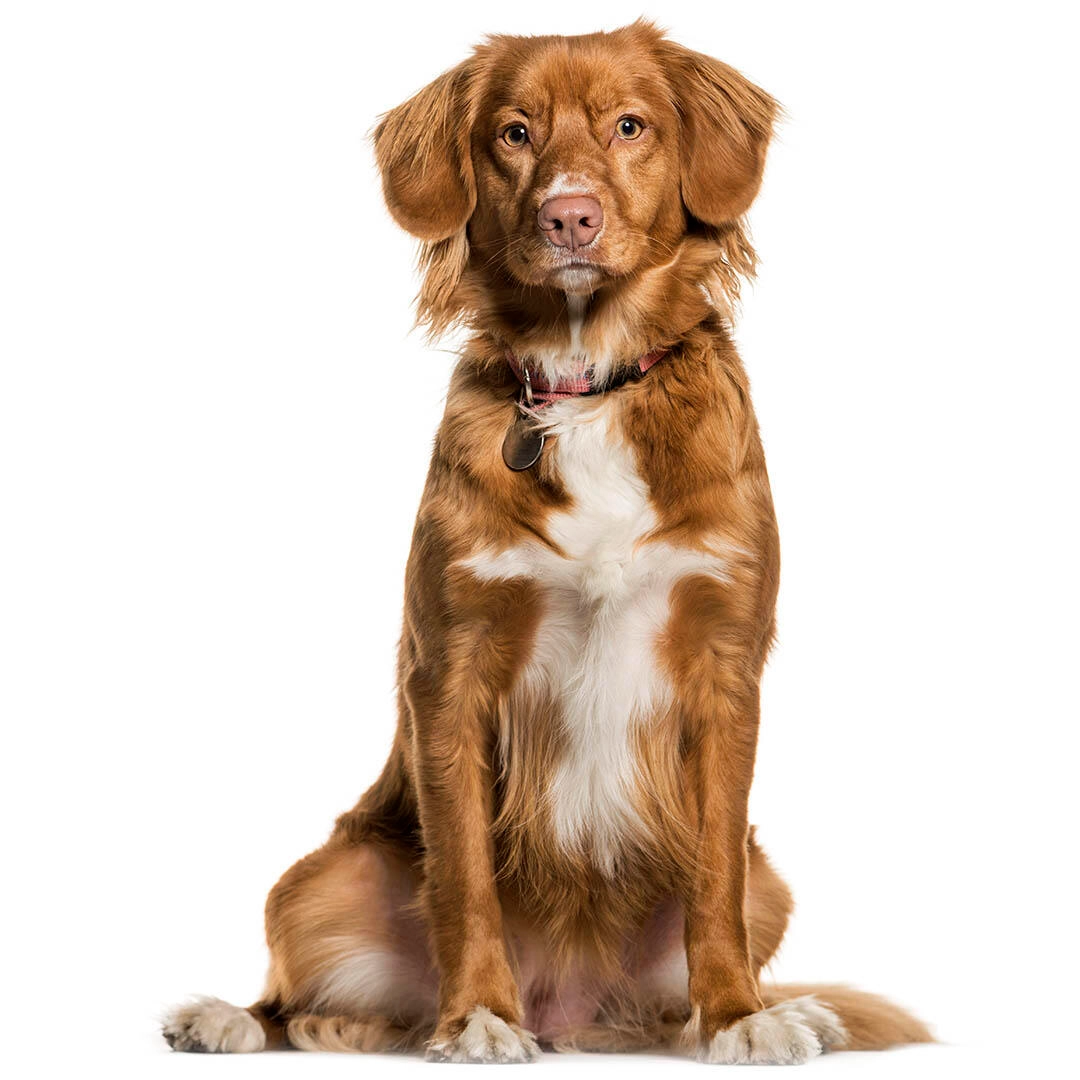
Often simply called the “Toller,” the Nova Scotia Duck Tolling Retriever is the smallest of the retriever breeds but has one of the most intriguing origin stories. Developed in the early 1800s in the Little River District of Nova Scotia, Canada, the breed was created to lure ducks into gun range using a unique hunting method known as “tolling.”
Hunters noticed that foxes would attract the attention of ducks by frolicking on the shoreline, drawing the birds in with their playful antics. The Toller mimics this behavior, darting in and out of view along the water’s edge while tossing a stick or ball, luring waterfowl closer before the hunter shoots.
The breed was originally called the Little River Duck Dog but gained official recognition by the Canadian Kennel Club in 1945 and later by the AKC in 2003 under its current name.
The Toller has steadily gained popularity worldwide, especially among active families and hunters. Its unique combination of intelligence, agility, and good looks has made it increasingly popular in dog sports like agility, flyball, and obedience. It’s also a favorite among those seeking a medium-sized retriever with energy to spare.
Despite its growing appeal, the Toller remains a relatively rare breed outside of Canada, which adds to its allure for dog enthusiasts.
Compact yet muscular, the Toller is agile, quick, and built for endurance and speed in both land and water environments.
Coat:
Medium-length double coat with water-repellent properties. The outer coat is dense and slightly wavy; the undercoat is soft and insulating.
Color:
Shades of red and orange, often with white markings on the chest, feet, blaze, or tip of the tail.
Size:
• Height: 17–21 inches (43–53 cm)
• Weight: 35–50 lbs (16–23 kg)
Build:
Athletic and balanced, with strong legs and a deep chest.
Tail:
Long, well-feathered, and very expressive—used as part of its duck-luring performance.
Eyes:
Almond-shaped and expressive, typically amber to brown, radiating intelligence and alertness.
The Toller is known for being a high-energy, intelligent, and affectionate dog that forms strong bonds with its family.
Energetic and Driven:
Thrives on activity and purpose. Needs plenty of exercise and mental stimulation daily.
Playful and Social:
Enjoys games, especially those involving water or retrieving. Generally friendly but may be reserved with strangers.
Highly Trainable:
Very intelligent and eager to please. Excels in obedience and dog sports with positive reinforcement training.
Alert and Vocal:
Naturally watchful, and known for the distinctive “Toller scream”—a high-pitched yelp of excitement, especially during intense play or anticipation.
Loyal and Affectionate:
Loves being around family members and may become distressed if left alone for long periods.

• Medium Size, Big Energy:
Ideal for active individuals or families who want a manageable-sized dog that can keep up with hikes, runs, and water sports.
• Unique Appearance and Ability:
Its vibrant red coat and tolling behavior make it stand out. Few breeds match its agility and cleverness in the field.
• Versatile:
Whether you’re looking for a working dog, a sporting competitor, or a loyal companion, the Toller adapts well when given a job or purpose.
• Family-Friendly:
Generally good with children and other pets when properly socialized.
Training:
Start early and keep sessions fun. The Toller can become bored with repetition, so variety and engagement are key.
Exercise:
Needs at least an hour of vigorous physical activity each day, plus games that stimulate its mind. Great candidates for agility, dock diving, or advanced obedience.
Grooming:
Brush weekly to prevent matting and reduce shedding. More frequent grooming is needed during seasonal sheds. Clean ears and dry thoroughly after water activities.
Socialization:
Introduce to a variety of people, places, and animals while young to encourage confidence and well-rounded behavior.

The Toller is generally healthy but may be predisposed to some hereditary conditions:
• Addison’s disease
• Progressive retinal atrophy (PRA)
• Hip dysplasia
• Autoimmune thyroiditis
• Collie eye anomaly (CEA)
Responsible breeders perform health screenings, and routine vet care will help maintain a healthy life.
Compared to the Golden Retriever:
Goldens are larger and more laid-back. Tollers are smaller, more intense, and have a higher energy level.
Compared to the Labrador Retriever:
Labs are more common and tend to be more boisterous and food-driven. Tollers are more reserved, focused, and sensitive.
Compared to the Border Collie:
Border Collies have a higher herding instinct and intensity, while Tollers combine playfulness with retrieval-driven behavior.
Choose a Toller if:
• You love outdoor activities and want a dog to share in them
• You enjoy training, playing, and teaching your dog new things
• You’re looking for a medium-sized, water-loving retriever with a unique heritage
• You can provide consistent engagement and exercise
Not Ideal For:
• Sedentary lifestyles
• First-time dog owners who may be overwhelmed by the breed’s energy
• Families looking for a quiet, low-maintenance pet
The Nova Scotia Duck Tolling Retriever is a special breed for special owners—those who understand its needs and love its quirks. Whether you're looking for a field partner, an agility star, or a vibrant companion, the Toller won’t disappoint. At United Pet Club, we’ll help you find the perfect one and support your journey with resources, products, and expert guidance.